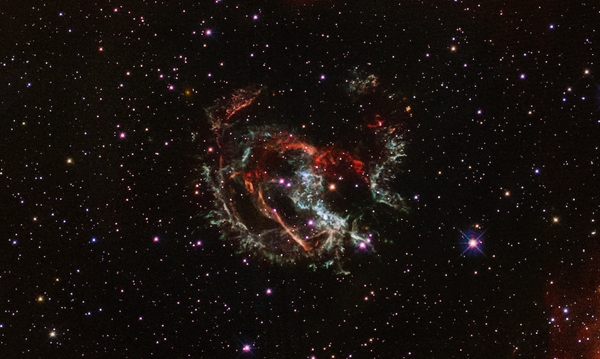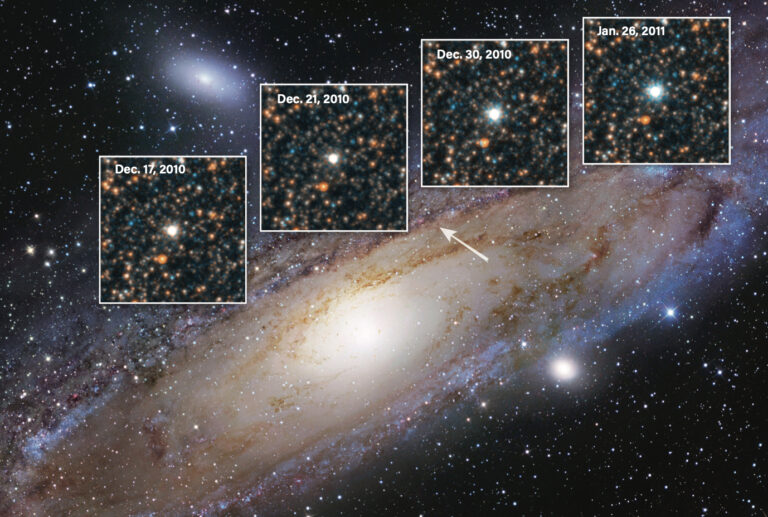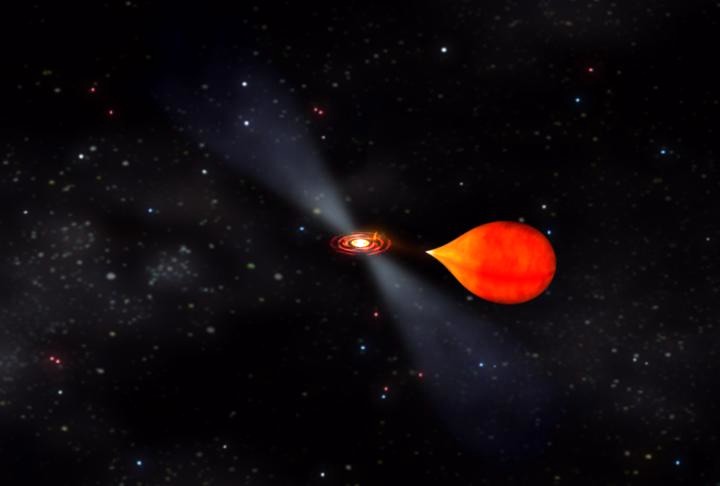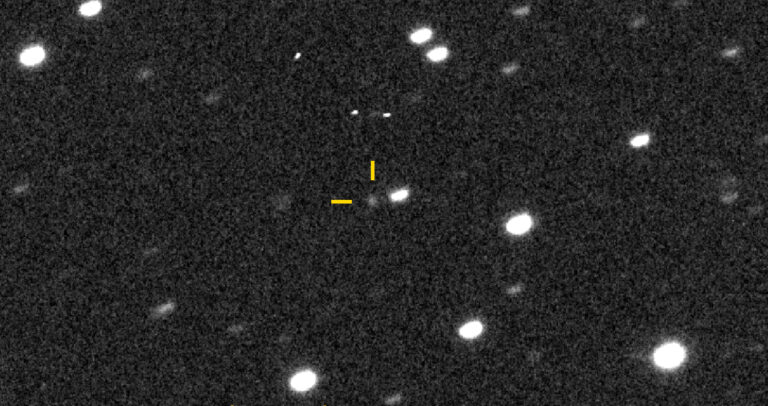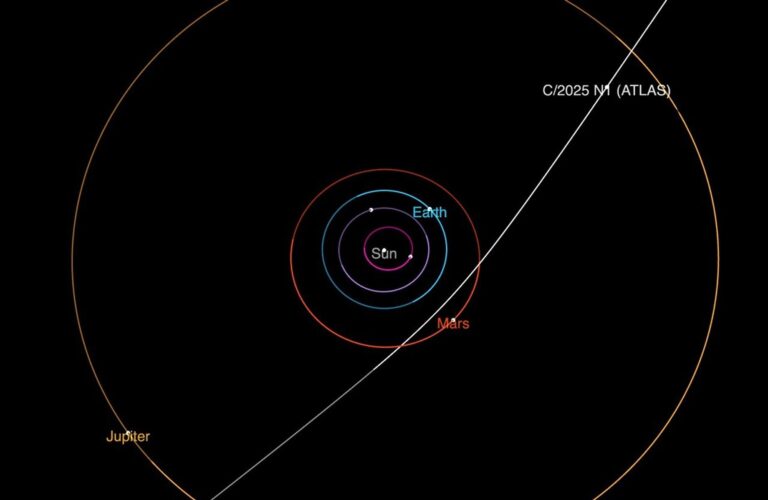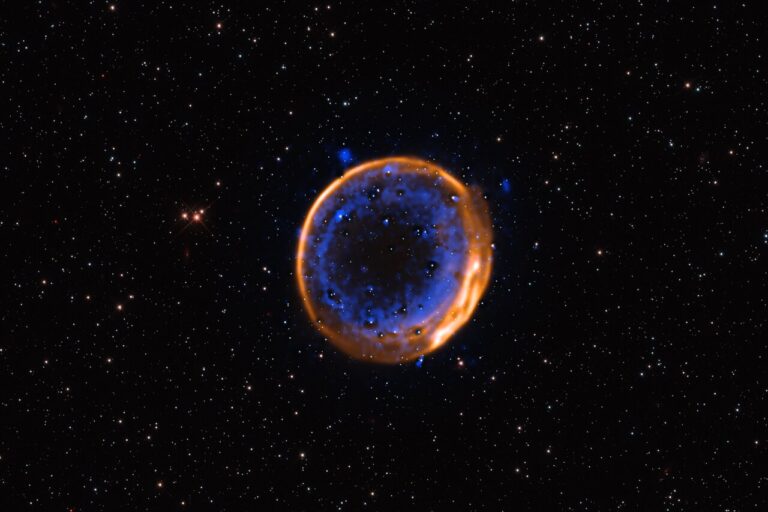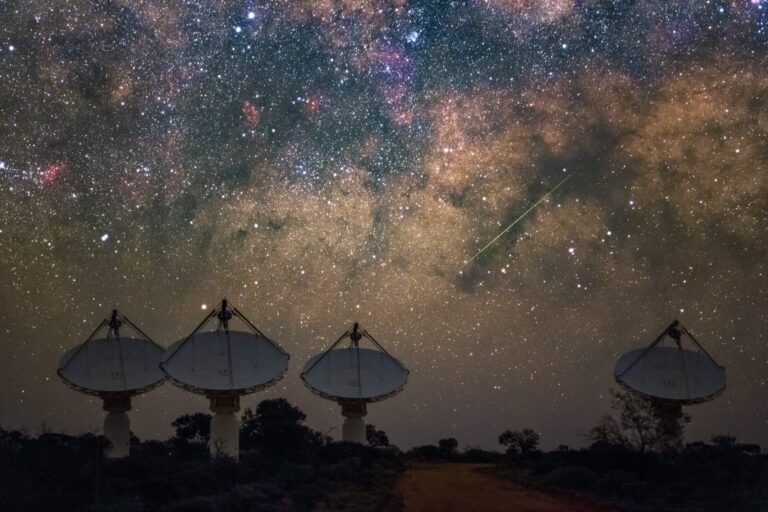Key Takeaways:
Thousands of years ago, light from a dying star in the Small Magellanic Cloud reached Earth. No records of the event exist, but it left behind a tangle of expanding gas and dust still visible today. Astronomers recently used the Hubble Space Telescope to reconstruct the blast and accurately determine its age: 1,700 years. Researchers rewound the clock by tracking 22 knots of material inside the supernova remnant, watching these clumps spread outward by comparing two images taken with the same camera 10 years apart. Based on the knots’ motions, the team traced them to their point of origin — the site of the original supernova explosion — and determined how long the knots had been moving to reveal the age of the blast.

